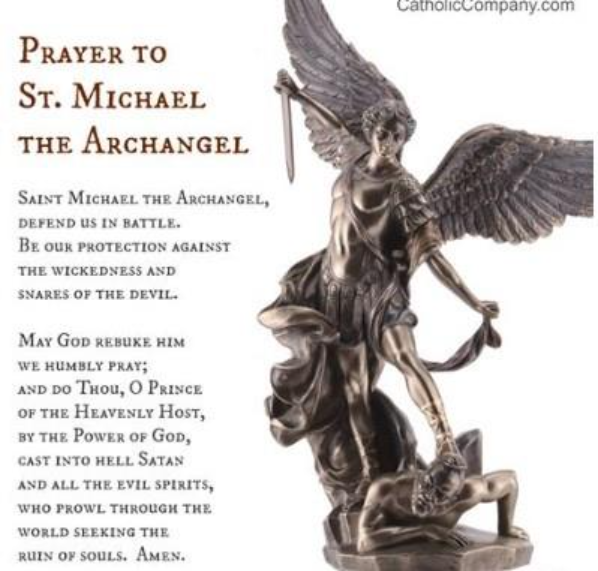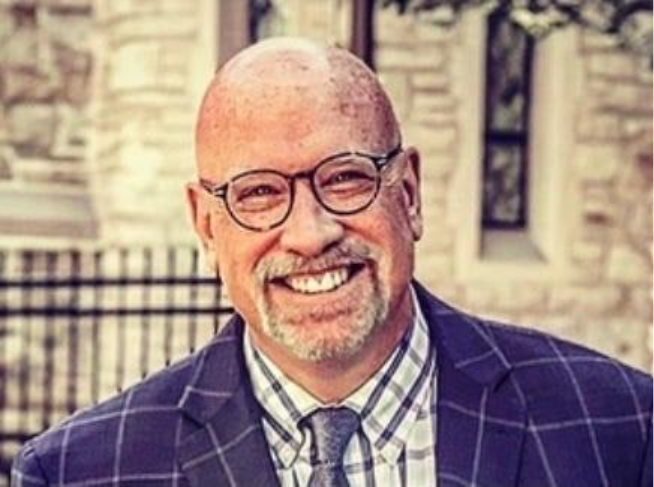“The LORD has made everything for a purpose, even the wicked for the evil day.”
(Proverbs 16:4)
In the name of the Father, and of the Son, and of the Holy Spirit. Amen.
My Friends,
As a criminologist and a public advocate for bringing God back into the public square, I am often asked: "If God is truly all-powerful and all-good, why does He allow evil to persist in society?" Today we reflect on a deeply mysterious and often misunderstood passage of Sacred Scripture: Proverbs 16:4 — “The LORD has made everything for a purpose, even the wicked for the evil day.” At first glance, this might appear troubling: does God create wicked people just to destroy them? Is evil part of God's will?
To answer these questions, we will rely on the Catechism of the Catholic Church, Sacred Scripture, and the wisdom of the early Church Fathers. Together, these sources lead us to a deeper understanding of God’s providence, human freedom, and the moral order built into creation.
I. God’s Sovereign Providence and Purpose
Scripture affirms repeatedly that God is the author of creation, and that everything He creates has an ultimate purpose. Genesis tells us that “God saw everything that He had made, and behold, it was very good” (Gen 1:31). This goodness is not arbitrary—it reflects God's wisdom and His ordered will.
The Catechism states:
“God created the world according to his wisdom. It is not the product of any necessity whatever, nor of blind fate or chance. We believe that it proceeds from God’s free will; he wanted to make his creatures share in his being, wisdom and goodness” (CCC 295).
This means that everything in creation—including time, matter, natural law, and the moral order—serves the final end of manifesting God’s glory (CCC 293). God's providence ensures that all things work together in view of this final purpose.
Even the things that seem contrary to God—sin, suffering, and yes, even the wicked—are not beyond His providence. God is never the author of evil, but He permits evil in His creatures, always with a view to a greater good (CCC 311–314).
As St. Thomas Aquinas affirms:
“God is so good that never would He allow any evil to exist, unless He were so powerful as to draw good from evil itself” (Summa Theologiae, I, q. 2, a. 3, ad 1).
II. Who Are the “Wicked,” and What Is the “Evil Day”?
The “wicked” in Proverbs refers to those who, by free choice, reject the commandments of God. These are not people created to be wicked, but those who misuse the gift of freedom and persist in rebellion.
Yet even these individuals, despite their resistance to grace, are not outside the reach of God's justice. The second part of the verse— “for the evil day”—refers to the day of divine judgment. It is the day when God reveals His justice fully and the consequences of human choices are unveiled.
The Catechism describes this moment as follows:
“The last judgment will reveal even to its furthest consequences the good each person has done or failed to do... When God will judge the secrets of men by Jesus Christ” (CCC 1039).
The “evil day” is not a day in which God causes evil, but a day when the wicked receive the judgment they have freely chosen by their actions. This is consistent with Romans 2:5, where St. Paul writes:
“By your hard and impenitent heart you are storing up wrath for yourself on the day of wrath when God's righteous judgment will be revealed.”
In this way, the proverb serves not to frighten, but to sober the soul. It reminds us that nothing is exempt from God’s judgment, and that His moral order—though sometimes delayed in time—is always fulfilled.
III. Biblical Precedents of Divine Purpose in Human Rebellion
The Bible offers several examples where God permits the wicked to act, not because He delights in their evil, but because He uses even their rebellion to accomplish His greater purposes.
A classic example is Pharaoh, of whom God says in Exodus 9:16,
“But for this purpose I have raised you up, to show you my power, so that my name may be proclaimed in all the earth.”
St. Paul quotes this in Romans 9:17 to illustrate how even hardened opposition cannot frustrate the divine plan. Pharaoh, in his pride, became the unwitting instrument by which God’s glory was revealed through the deliverance of Israel.
This is echoed in the Acts of the Apostles, when the early Church reflects on Christ’s Passion:
“Truly in this city there were gathered together against your holy servant Jesus… both Herod and Pontius Pilate… to do whatever your hand and your plan had predestined to take place” (Acts 4:27–28).
The crucifixion, the greatest evil ever committed—the unjust murder of the Son of God—was turned by God into the greatest good: the redemption of the world.
Thus, Proverbs 16:4 does not speak of a God who creates people for damnation, but of a God who permits evil, and brings perfect justice and even greater good from it.
IV. Wisdom from the Early Church Fathers
The early Fathers of the Church did not shy away from this proverb. Rather, they saw in it a confirmation of God’s just governance and the sacredness of free will.
St. Augustine, in his Enchiridion, writes:
“God judged it better to bring good out of evil than not to permit any evil to exist.”
This reflects the confidence of the Church that evil never escapes God’s dominion.
Origen, in his Homilies on Exodus, observes:
“Even the wicked are part of the divine plan, not because God delights in wickedness, but because He uses all things to bring about His glory.”
And St. John Chrysostom explains:
“The wicked, by their own will, heap up judgment for themselves, but God permits it and turns it to the benefit of the righteous. Even their persecutions become a means of sanctification for the just.”
The Fathers never portray God as vindictive. Rather, they show a God who is always just, patient, and merciful—but also sovereign. He will not be mocked. The wicked will serve His purposes, willingly or not.
V. Providence and Free Will: A Synthesis
The tension between divine providence and free will is one of the great mysteries of theology. The Catholic Encyclopedia (1911) summarizes it this way:
“Divine providence… implies that the universe is not a mere play of chance or necessity, but that it is directed by a conscious intelligence toward a definite end. It includes all things—even the free acts of rational beings and the evil acts that God permits but does not will.”
God allows human beings to choose good or evil. He does not force righteousness, for love must be freely given. But He also holds us accountable. And when evil occurs, He redeems it in ways often invisible to us, but always ordered to His glory.
This leads us to a spiritual conclusion: we are not victims of fate or chaos. Every event, every trial, even the actions of the wicked, fall within the scope of divine wisdom.
VI. Spiritual Application: The Proverbs in Our Lives
How does this proverb speak to us today?
It reminds us not to envy the wicked. Though they may seem to prosper, they are not beyond God's justice. “Fret not yourself because of evildoers… for they will soon fade like the grass” (Psalm 37:1–2).
It calls us to humility. We too are capable of wickedness if we do not remain in grace. St. Paul warns: “Let anyone who thinks that he stands take heed lest he fall” (1 Corinthians 10:12).
It reassures us of divine order. Evil may seem victorious for a time, but God's justice will not fail. His timing is perfect.
It encourages repentance. As long as life remains, the invitation to conversion is extended. “As I live,” declares the Lord, “I have no pleasure in the death of the wicked, but that the wicked turn from his way and live” (Ezekiel 33:11).
VII. The Cross as the Fulfillment of this Mystery
All of Scripture finds its center in Christ. And the Cross is the fullest expression of how God brings good out of evil. The wicked conspired to kill the Lord of life—but God used their hatred to bring about the triumph of mercy.
In this we see the meaning of Proverbs 16:4 fulfilled:
The wicked served God's purpose—not by their intention, but by God’s orchestration of events to bring about redemption.
Conclusion
Let us not tremble at this verse, but rejoice in its truth. God is sovereign. He is just. He is merciful. And nothing escapes His gaze.
Let us choose the way of the righteous—not out of fear, but out of love for the One who governs all things in wisdom. And let us proclaim with faith and confidence:
“The LORD has made everything for a purpose, even the wicked for the evil day.” (Proverbs 16:4)
In the name of the Father, and of the Son, and of the Holy Spirit. Amen.
Welcome to the St Michael’s Group! In a world facing a decline in religious belief and an increase in moral confusion, the need to reignite our faith has never been more critical. Religion’s capacity to offer meaning, foster ethical behavior, and build cohesive communities is vital for countering the spread of spiritual apathy and the influence of evil. By renewing our commitment to faith, we can combat the forces that seek to divide and weaken us. Reigniting our faith lives, therefore, is not just a personal endeavor but a collective responsibility. It is essential for preserving the moral and spiritual fabric of our society, ensuring that love, compassion, and justice continue to be the guiding principles of human existence.
This is why I started the St. Michael’s Group Substack and Podcast. Join us today stmichaelsgroup.substack.com and let’s start a movement of reigniting faith, family, and formation back into our lives.
This is Dr. Currie Myers. I am an applied criminologist and criminal justice ethicist. I have been on faculty in the criminology department at Benedictine College for over 13 years and was a career law enforcement officer for 24 years. Most importantly I have a beautiful family. My wife and I have been married for 37 years, and we have five children and 10 grandchildren. You can view my work on applied criminology at drcurriemyers.substack.com.
If this episode moved you, I invite you to share it with someone you love. Let this be a holy conversation starter. And if you haven’t already, spend time in front of the Cross this weekend. Not to look at it, but to be changed by it.
Thanks for joining me! Stay rooted in faith, sharpened by virtue, and courageous in truth. God bless you, and I’ll see you next time on The St. Michael’s Group Podcast.
Dr Currie Myers, America's Criminologist - Former Agonistic turned Convert to the Catholic Faith. Dr. Myers is a published author and speaker. Contact (catholicspeakers.com) for Dr. Myers to speak at your event!
















Share this post